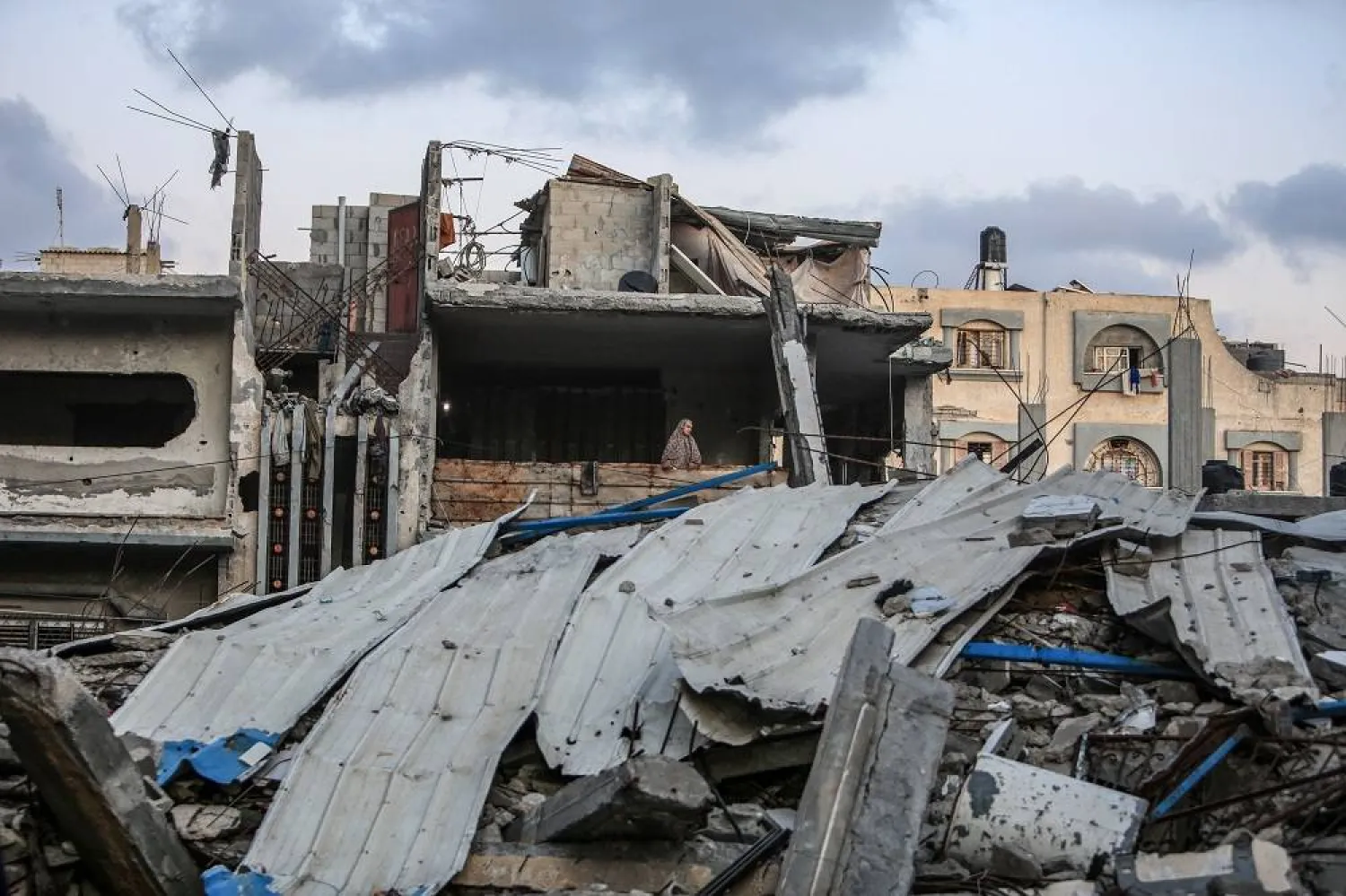Tens of thousands of civilians fled the southern Gaza city of Rafah ahead of a threatened Israeli ground offensive, as Palestinians on Wednesday mark the anniversary of their "Nakba" or "catastrophe" of 1948.
During the war that accompanied Israel's creation, around 760,000 Palestinians fled or were driven from their homes and many took refuge in what would later become the Gaza Strip and the West Bank.
Wednesday's commemoration of the "Nakba" comes as multiple battles between Israeli troops and Hamas fighters across the Gaza Strip force waves of Palestinian mass displacement.
Nearly 450,000 Palestinians have been displaced from Rafah since May 6, and around 100,000 from northern Gaza, UN agencies said.
That means around a quarter of Gaza's population of 2.4 million people have been displaced again in about one week.
UN chief Antonio Guterres repeated his call for a humanitarian ceasefire to allow more aid into the besieged territory.
"I reiterate my appeal for an immediate humanitarian ceasefire in Gaza and for the release of all hostages. I call for the Rafah crossing to be re-opened immediately and for the unimpeded humanitarian access throughout Gaza," he posted Tuesday on social media site X.
The war and siege have triggered a humanitarian crisis in Gaza, with the UN repeatedly lamenting aid restrictions as famine stalks the north.
Since Israeli troops moved into eastern Rafah, the aid crossing point from Egypt has remained closed and the nearby Kerem Shalom crossing lacks "safe and logistically viable access", a UN report said late Monday.
Qatar, which has been mediating peace talks, said Gazans "have not received any aid" since May 9.

- Attack on aid convoy -
Israeli police on Tuesday said they had opened an investigation after right-wing activists stopped and ransacked at least seven Gaza-bound aid trucks coming from Jordan, leaving food spilt on the road.
One of the activists, Hana Giat, said that with hostages still held by Hamas, "no humanitarian aid should go in before our hostages are out, safe in their homes".
Both the United States, which called it "a total outrage", and Britain, said they would raise concerns about the incident with Israel's government.
EU foreign policy chief Josep Borrell called on Israeli authorities to stop the attacks and hold those responsible to account.
"I'm outraged by the repeated & still unchecked attacks perpetrated by Israeli extremists on aid convoys on their way to Gaza, including from Jordan. Hundreds of thousands of civilians are starving," Borrell posted on X late Tuesday.
The bloodiest-ever Gaza war erupted after Hamas's October 7 attack on Israel, which killed more than 1,170 people, mostly civilians, according to an AFP tally of Israeli official figures.
Gunmen also seized about 250 hostages, 128 of whom Israel estimates remain in Gaza, including 36 the military says are dead.
Israel's relentless bombardment and ground offensive in Gaza have since killed at least 35,173 people, mostly civilians, according to the Gaza health ministry.
Clashes have rocked densely crowded Rafah but also flared again in northern and central Gaza months after troops and tanks first entered those areas.
At least five people were killed, including a woman and her child, and several others wounded, in two Israeli air strikes on Gaza City on Tuesday night, according to Gaza's civil defense agency.
Israel last week defied a chorus of warnings -- including from top ally Washington which paused a shipment of bombs -- and sent troops and tanks into the east of Rafah to pursue militants.
- 'No clarity on how to stop war' -
Battles and heavy Israeli bombardments have been reported around Rafah as well as in Gaza City and Jabalia refugee camp in the north, and Nuseirat camp in the center.
At Gaza City's Al-Ahli hospital, the wounded and the dead arrived.
A shirtless man, his chest smeared with blood, lay on a hard cot hooked up to a monitor. Outside, several men carried a shrouded corpse and placed it in the shade of a tree blooming red flowers.
Despite threatening to withhold some arms over concerns of a Rafah assault, US President Joe Biden's administration informed Congress on Tuesday of a $1 billion weapons package for Israel, official sources told AFP.
US State Department spokesman Vedant Patel earlier Tuesday said that while Washington backed military pressure on Hamas, it was not the only way to "fully defeat" the militants.
Patel reiterated Washington's position that, without a political plan for Gaza's future, militants "will keep coming back and Israel will continue to remain under threat", leading to "this continued cycle of violence".
Momentum had been building in truce negotiations, mediator Qatar's prime minister said on Tuesday, but "what happened with Rafah has set us backward".
Prime Minister Sheikh Mohammed bin Abdulrahman Al-Thani said that "right now we are on a status of almost a stalemate".
Egypt and the United States have also been mediating.
"There is no clarity how to stop the war from the Israeli side. I don't think that they are considering this as an option," Sheikh Mohammed said.
On the eve of the "Nakba" commemoration, thousands of people took part in an annual march that took them through the ruins of villages that Palestinians were expelled from during the 1948 war that led to Israel's creation.
Eyes glistening with tears, Abdul Rahman al-Sabah, 88, recalled how members of the Haganah, a Zionist paramilitary group, forced his family from al-Kassayer and "blew up our village".









